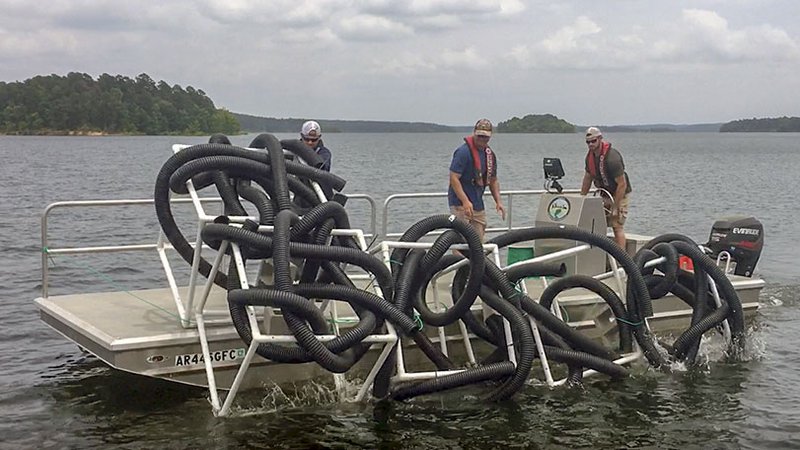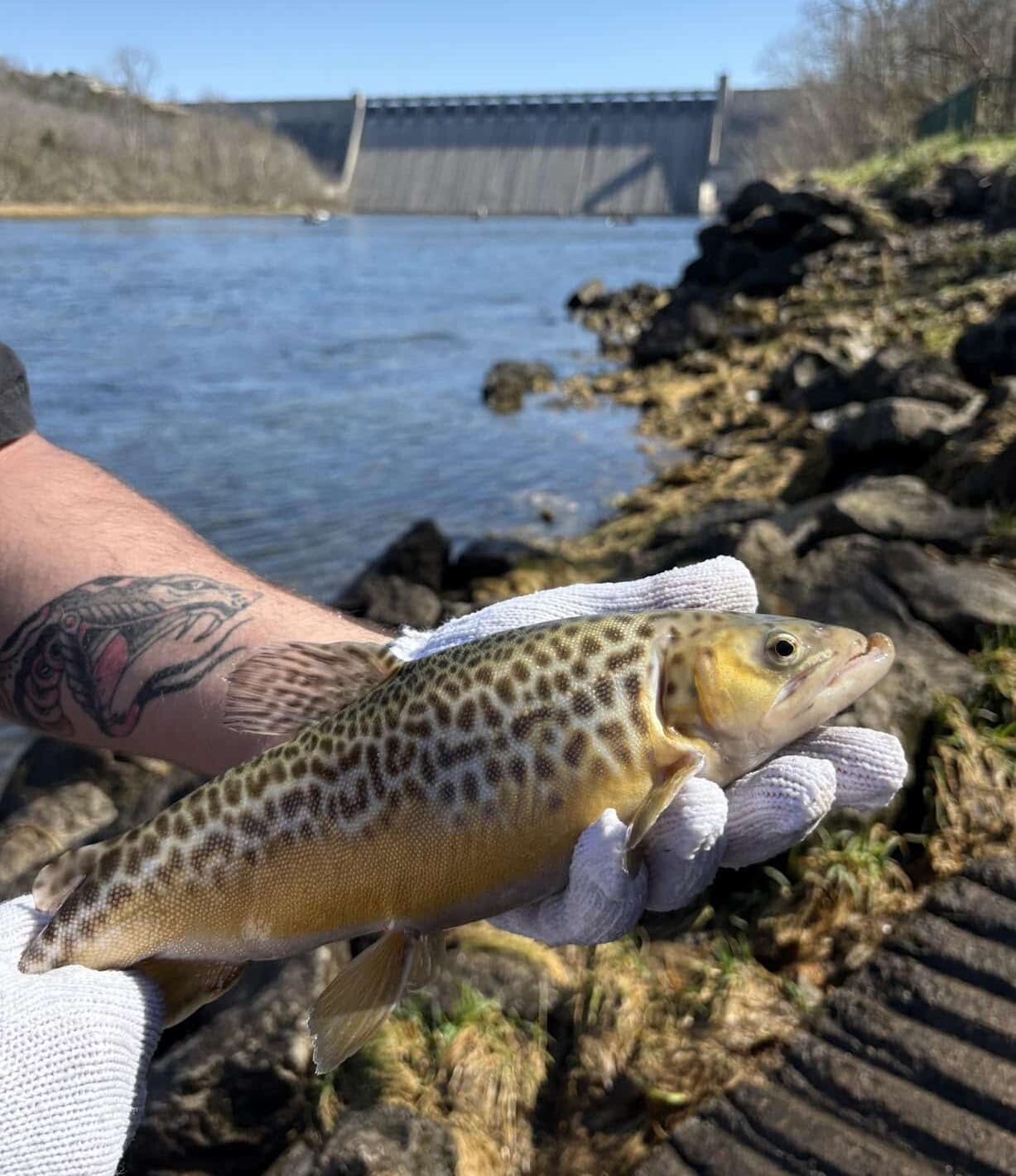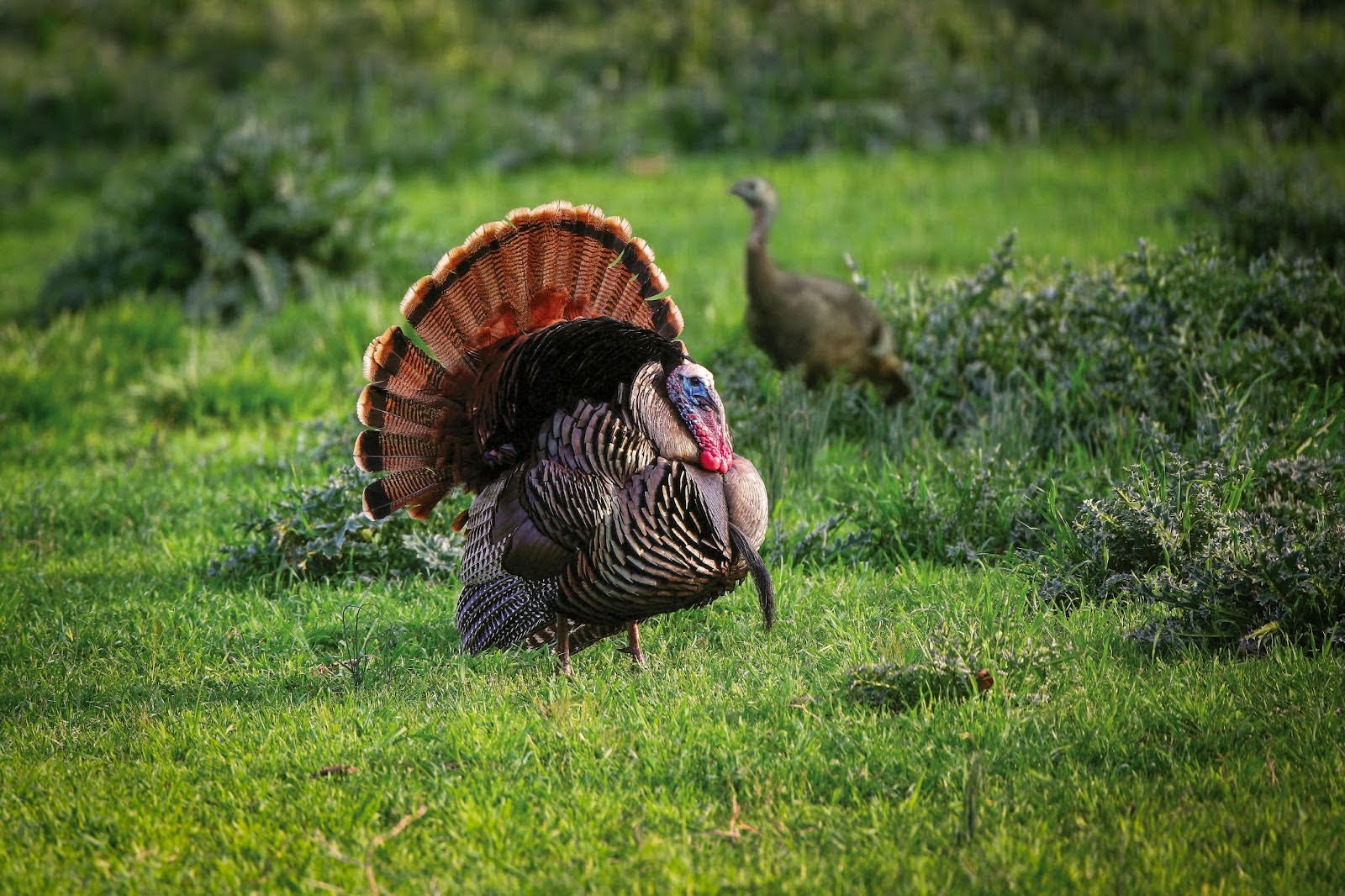Biologists box bass, crappie at DeGray Lake
ON 06-20-2018

June 20, 2018
Randy Zellers
Assistant Chief of Communications
ARKADELPHIA – More than 11,000 cubic feet of new cover for anglers to fish sits at the bottom of DeGray Lake in Clark and Hot Springs counties, thanks to the efforts of Arkansas Game and Fish Commission staff from across the state. Two-hundred and forty near-permanent fish attractors were dropped in various locations of the 13,800-acre Corps of Engineers reservoir.
The attractor design, originally developed by the Georgia Department of Natural Resources, offers excellent cover for fish. A 3½-foot cube of 1½-inch rigid PVC is constructed, then enhanced with 50 feet of 4-inch black corrugated pipe. The inert plastic lasts decades and is the same materials used in drinking water and water drainage lines.
“Fish of all sizes can use this cover,” Hobbs said. “Algae will form on the surface of the cubes, which attracts baitfish. Baitfish attract larger fish. And the complex cover lets fish get around and even inside of the cube and drain pipe.”
In addition to being popular with bass, bream and crappie, Georgia cubes have proven easy to mass produce and distribute. Biologists were able to distribute 10 such structures at 24 locations stretching from Caddo Bend to Lennox Marcus in one day.
“We had 35 staff members cutting, gluing, tying and sinking these cubes all day, but we managed to complete the project much faster than we originally anticipated,” Hobbs said. “Three specially designed habitat barges worked nonstop, dropping off bundles of cubes.”
Hobbs says this is the fourth large-scale habitat project undertaken by AGFC biologists in the last two years.
“We all add cover whenever we can to our local lakes, but these are all-hands-on-deck affairs that can accomplish in one week what would take a single district an entire summer,” Hobbs said. “We’ve done these major projects at Greers Ferry, Lake Chicot, Bull shoals and now DeGray.”
The Greers Ferry and Bull Shoals projects used natural cover in the form of cedar trees which lined the shore of those lakes, but Chicot and DeGray saw artificial cover instead.
“Both of those lakes had large cedars that needed to be removed, which will last a long time underwater,” Hobbs said. “The Corps has been a great partner in letting us cut some of these trees at those locations, but the habitat along the shore of DeGray is a little different. It’s mostly elm, sweetgum and other soft woods that deteriorate quickly. So we opted for these artificial attractors here.”
Fish will benefit from the habitat, but Hobbs says these attractors are no substitute for the deep grass once prevalent at DeGray.
“Both Ouachita and DeGray lost nearly all their submerged vegetation in 2008-2009,” Hobbs said. “Aquatic vegetation appears to be coming back strong on Ouachita finally, but it’s still missing at DeGray. There is some water willow along some of the shoreline, which offers nursery habitat for fish, but deeper areas are largely a barren moonscape.”
The biggest benefit with fish attractors such as these is to give anglers more options to target in pursuit of bass, crappie and bream. The GPS coordinates of all attractors will be loaded to the AGFC’s interactive map of all fish attractors at www.agfc.com.
“All fishermen love to fish a brush pile, but not all fishermen love building them,” Hobbs said. “In many cases, you need special permission from the Corps of Engineers to even sink fish attractors. We’re just trying to make it easier to get out and enjoy a day on the water.”
Visit the interactive map to view fish attractor locations
or
Recent News

Catch a tiger by the tail(water)
Mar. 31, 2025
Subscribe to Our Weekly Newsletter E-mails
Don’t miss another issue. Sign up now to receive the AGFC Wildlife Weekly Newsletter in your mailbox every Wednesday afternoon (Waterfowl Reports are published weekly during waterfowl season and periodically outside the season). Fishing Reports arrive on Thursdays. Fill in the following fields and hit submit. Thanks, and welcome!

